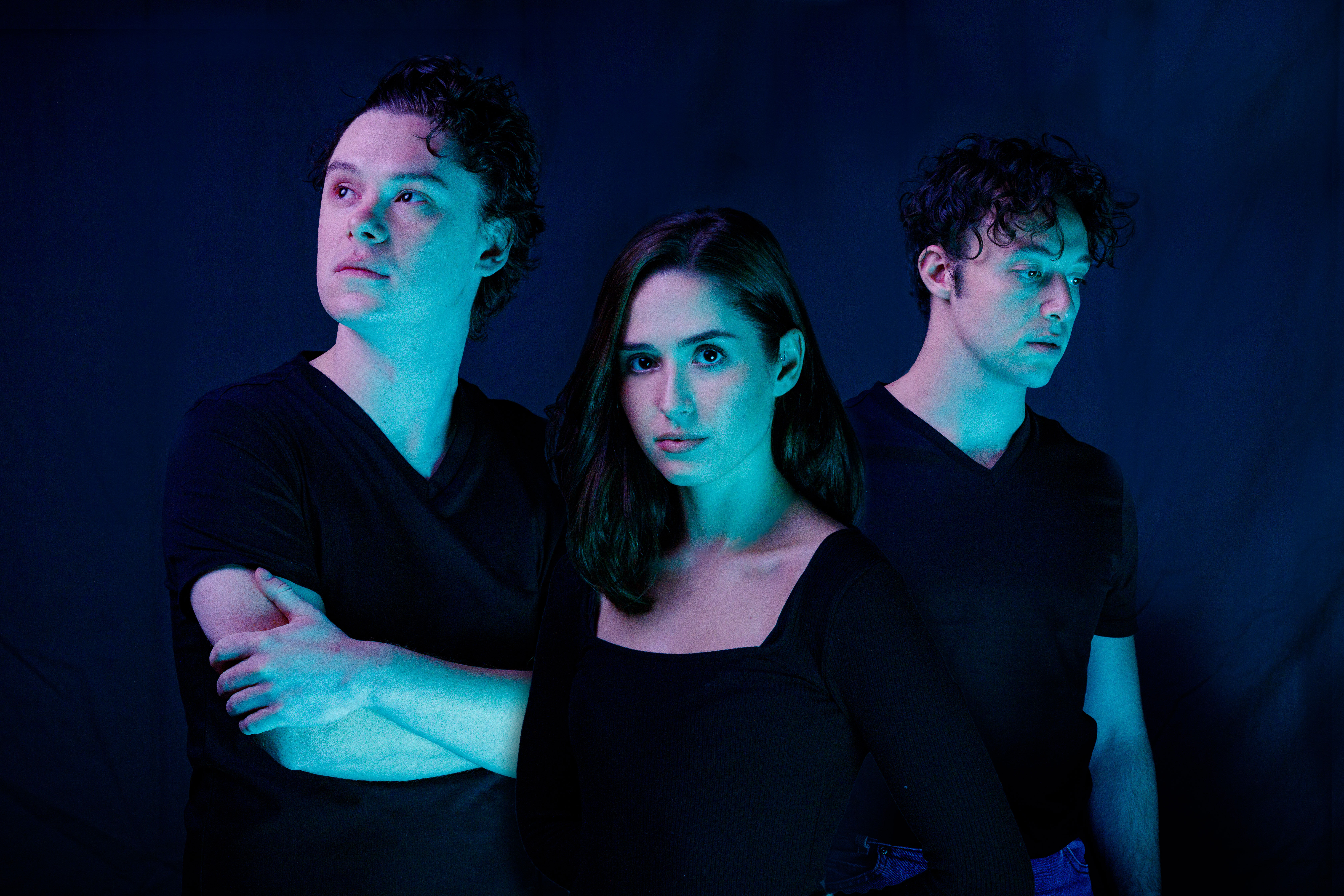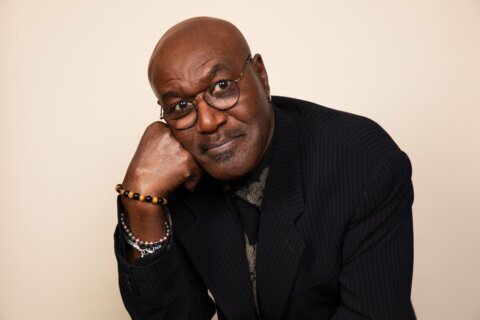
It won eight Tonys, including Best Musical, when it debuted on Broadway in 2006.
Next week, the smash rock musical “Spring Awakening” opens at Round House Theatre in Bethesda, Maryland for a month’s run, from Jan. 22 to Feb. 23.
“When it was on Broadway in 2006, I was in college and a friend of mine saw it and loved it, but I didn’t get a chance to see it until it came to the Kennedy Center,” director Alan Paul told WTOP.
“Oh my God, teenage angst! I wasn’t long from being a teenager, so everything the show was about was so fresh to me. Also as a young person who was a theater nerd, the original production was so innovative. … It blew my mind open.”
Written by Steven Sater (book and lyrics) and Duncan Sheik (music), the story follows three teenage students coming of age in the oppressive society of 1891 Germany.
“[They] are discovering their sexuality and growing into adulthood,” Paul said. “They’re met with resistance from parents and adults who refuse to teach them about it. … The adults in this version are so afraid to have a frank conversation about mental health or sexuality that the children in this piece are left to their own devices.”
The original Broadway cast launched Jonathan Groff (“Hamilton”), Lea Michele (“Glee”), Skylar Astin (“Pitch Perfect”) and John Gallagher Jr. (“American Idiot”).
“Every single person in that original went on to major stuff,” Paul said. “It really launched everyone into big stars. They were all like 17 or 18. They were so young, but that was a testament to the original and finding great people. So maybe we’ll be launching a lot of new stars from Bethesda! I think all three leads are future stars.”
Leading the way is Evan Daves as the rebellious Melchior.
“Melchior is the main character, a young man who’s sort of a young revolutionary,” Paul said. “He’s struggling against an oppressive system that he feels he can change that’s very prude about sexuality and a group of teachers who are unfair to him.”
Sean Watkinson plays Melchior’s troubled best friend Moritz.
“He is a problem child,” Paul said. “He has a lot of emotional difficulties and the world becomes too much for him. He is a tragic example of what it means to die by suicide, which he does in the second act. It’s also the story of a society around him that doesn’t know how to help him and doesn’t understand the depth of what he’s going through.”
Cristina Sastre plays Wendla, who falls in love with Melchior.
“She is a young innocent woman who doesn’t know anything about sex and finds out too late the consequences of what happens when you have sex,” Paul said. “She is a victim of a society of adults who arm her with zero information to help in her journey through life. It’s a tragedy about what happens when there is a breakdown between adults and young people.”
Paul was amazed at how well the young cast already identified with the material.
“It is the most amazing, interesting, quirky group of young people I’ve ever seen,” Paul said. “We worked really hard to keep it young. One woman in the ensemble is still a senior at Howard [University]. ‘Spring Awakening’ has meant so much to them. … They know every word before the first rehearsal, so you realize you’re part of an iconic theater experience for young people.”
Their blossoming hopes and harsh realities are juxtaposed via contrasting visuals by scenic designer Adam Rigg and lighting designer Colin K. Bills.
“The scenes are realistic, but when the kids sing, we are thrust into a world of their fantasies and desires,” Paul said. “When you walk into the theater, you’ll see a giant, full-stage picture of an Adam and Eve scene about innocence and the rigidity of the past. Then every time they go into their fantasy in song, the stage becomes full of neon lights, so you see their desires in neon color. … Big changes happen to the scenery as the play goes on that reflect the inner state of the lead performers.”
Best of all is the rock music by Duncan Sheik, who stormed ’90s radio with the hit song “Barely Breathing.” In “Spring Awakening,” Sheik delivers a string of instant theater classics, from “Mama Who Bore Me” to “The B*tch of Living.”
“The music in the show is so gorgeous, so detailed and orchestrated so incredibly,” Paul said. “He’s able to have rock songs, but they’re done in a way that tells a story and fits into a theatrical piece. There’s incredible singing. It’s very interesting, plain singing with incredible harmonies throughout the show. That’s the richness of this experience. It’s like no other music we’ve heard. I’m eager for you to hear the show as much as I am for you to see it.”
The musical numbers are all matched with unique choreography by Paul McGill.
“What was so memorable about the original ‘Spring Awakening’ was Bill T. Jones’ choreography, so it’s a chance for full expression of the body,” Paul said. “We’re not doing any steps from Bill T. Jones. It’s entirely original [by McGill]. His dances throughout the show are so unlike anything I’ve ever seen for ‘Spring Awakening.’ They’re so personal, a mix of what feels like modern dance and also theater dance.”
As for Paul, the prolific director grew up in Potomac, Maryland, studied theater at Northwestern University and ultimately returned to the D.C. area. Most recently, he helmed Lauren Gunderson’s “Peter Pan & Wendy” at Shakespeare Theatre Company.
“I got bit by the theater bug at the Lisner Auditorium when I was 5 years old seeing ‘The Wizard of Oz’ — Dorothy looked at me,” Paul said. “I grew up going to the Shakespeare Theatre and I promised myself I would never move back to the D.C. area, but when I was 21, Michael Kahn, the former artistic director of Shakespeare Theatre Company, hired me as an intern. That was 14 years ago, so I stayed.”
While his home is Shakespeare Theatre, he jumped at the chance of Round House.
“I grew up 15 minutes away from it and I saw everything there, including Lea Michele in ‘The Diary of Anne Frank’ directed by a mentor to me, Rebecca Taichman, who won the Tony last year for ‘Indecent’ on Broadway, so I have a personal connection to it,” Paul said.
“It’s also one of the most exciting theaters in the D.C. area, doing contemporary work in a really exciting way. So when Ryan Rilette, the artistic director, asked me to come do a musical, I was like, ‘I’m 100 percent in.'”
On Wednesday, the company finally moves into the theater after weeks of rehearsals.
“Whether you’ve seen it before or you’ve never seen it, I think it’s one of the most incredible modern pieces of musical theater,” Paul said. “You will see it done in a way that you haven’t seen it before, both in the way it looks visually with the choreography and in the interpretation. It is a story about 1891, but it’s also a story about today. It’s a story about intergenerational issues, so young people and everyone else, come to the theater! You’ll have a great time.”
Find more details on the theater website. Hear our full chat with Alan Paul below:








